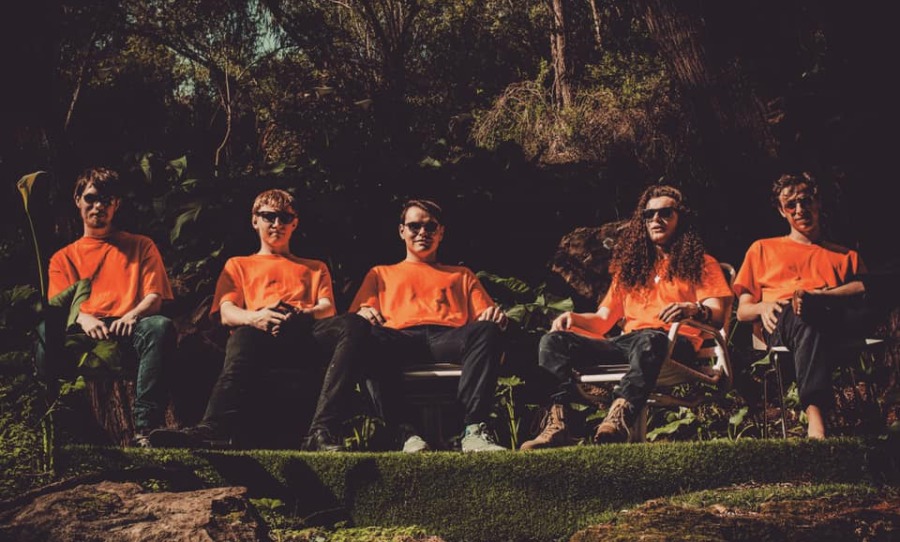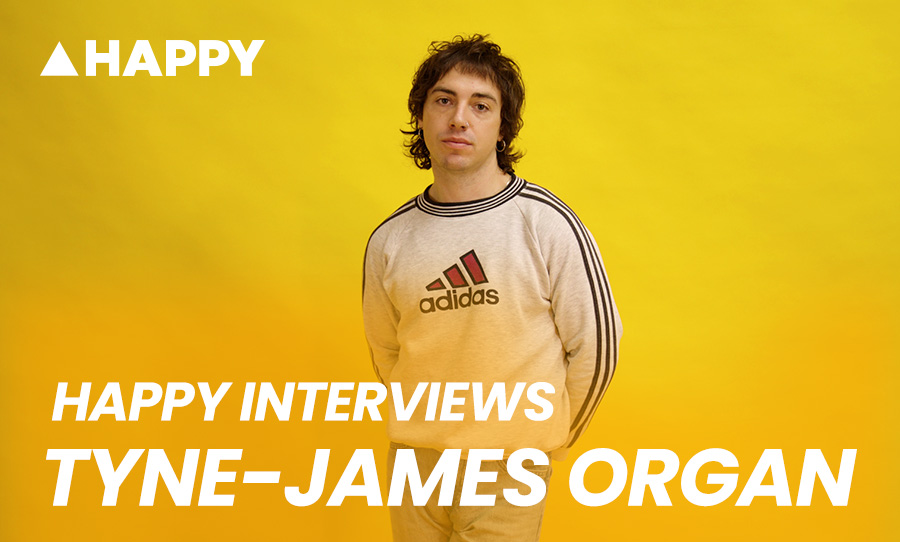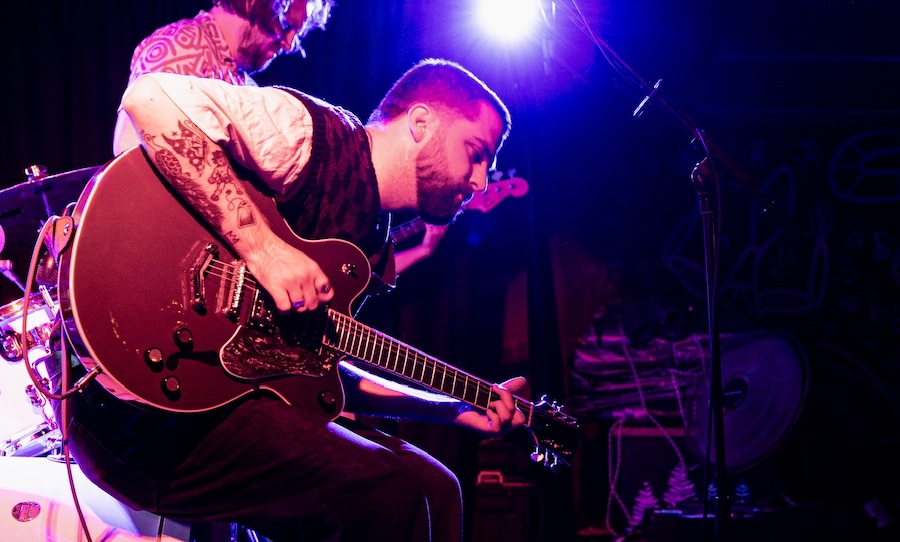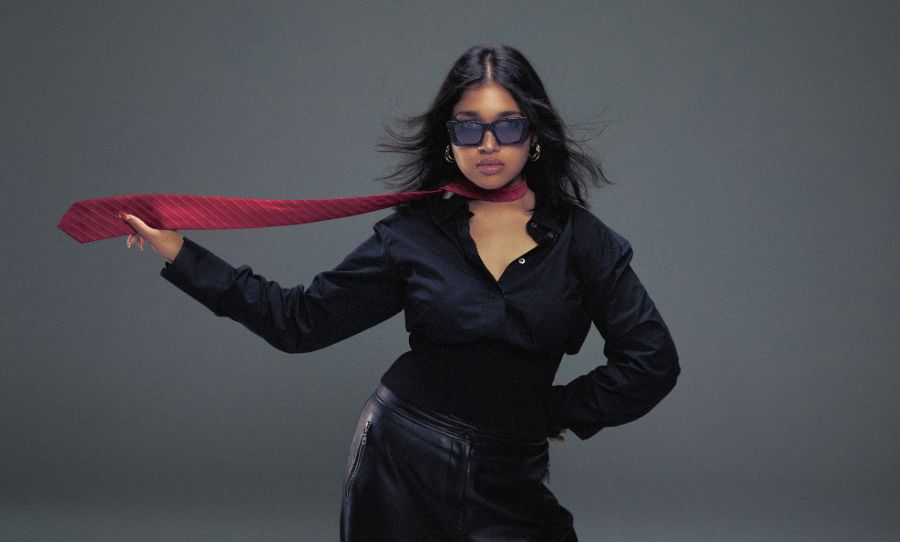From joining the circus, to using psychedelics as a vehicle for travelling, nothing is off the table for Nick Littlemore as he chats with Perth band, The Atlas State.
Coming from their online collaboration for newly released single, Misfire, The Atlas State chat with Pnau and former Empire of the Sun member, Nick Littlemore.
Oozing with colourful stories and years of experience producing music in Australia, The States and the U.K., Littlemore offers advice to everything from maximising a jam session, to delving into foreign music and pushing the boundaries of sound.
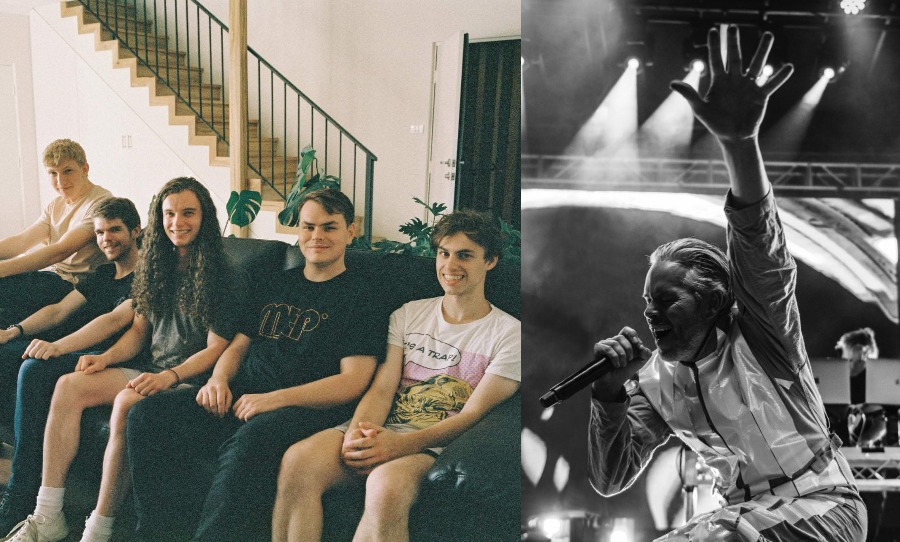
THOMAS: Hey Nick! We would love to get an insight into the quirks of the music industry.
NICK: Well there are a lot of quirks to the music business, I started out in this business when I was about 16. We were selling something in the trading post, which was pre-eBay, and these guys in the Blue Mountains wanted to swap what I was selling for something that they had. Actually, it was kind of a bad deal for us, but welcome to the music business [laughs].
They said “we started just a label, can you bring some of your music?”, and Peter and I were still in high school but we were making music already. We were going to acid parties, I guess you call them doofs, so we were trying to make music similar to that at the time which was influenced by music from Belgium and Germany. It was pretty naive, we didn’t even have a drumset at the time but we went for a daft-trance sort of theme, and they loved it [laughs].
So they signed us and we went on from there, they never ended up putting that stuff out, but yeah, it’s been a long journey. I’m 43 now so I’ve been doing this far too long. It’s a long game, but in terms of advice in the music business you have to stay in it, and you have to stay prolific, I think it’s the only way to get ahead. When I say prolific I mean I’ve written a lot of songs and very few of them have ever generated any kind of yield or income. But I like to share the music rather than just bury it because it weighs on you. I would rather just put it out even if 500 people listen to it, I don’t really care.
THOMAS: So you’re not about keeping a backlog of material and be really selective with your work?
NICK: Inevitably there’s always going to be a backlog, but I always try and put out as much as I can. I started a label a few years ago, and during the pandemic, I was so locked down and I saw one of your [The Atlas State’s] clips or something online and I just researched you guys or you researched me, I don’t remember. I live in California so I smoke a lot of weed [laughs], so it’s all a little hazy, but I liked what you were doing and I was excited to make something with you guys.
ANDREW: Yeah it’s been really great working with you.
THOMAS: It’s definitely been a change from what we normally do which is awesome. It really pushed us in the direction we didn’t really expect to go to as a collective group of musicians. But we definitely have differing influences, so it’s been a fun journey.
NICK: Do you have a set of influences that you all collide on?
ANDREW – Chameleon by Pnau [laughs].
THOMAS: I think the story behind the band is that most of us went to high school together, we jammed at a birthday and it was organic in that we all loved music-making. It wasn’t really specific to a genre or band and that’s probably our achilles heel: our tastes are all so diverse.
I’m a jazz/saxophone player by trade, and that’s kind of what I’ve done for most of my music career. Owen is a bit of everything — a synth pop, Pond, and Tame Impala fan. And then Andrew, well he’s just an open book — I feel like he would go from one thing to another. But I think that’s where we really have to consolidate and solidify our sound and what the influences are, instead of every release being slightly different in genre. What’s your take on that, Nick?
NICK: I feel like the thing is, we tried one way of writing together when we weren’t in the same room which was difficult. But I think there are a million different techniques for making music. It’s interesting that you [Thomas] said you play sax and are from a jazz background, but if you try putting together a melody that turns into a vocal melody, I wonder how that would turn out.
Some bands that I’ve worked with have had really great guitarists, the other guys were more conceptual/sonically based, but they would cut up the guitarists’ solo and make melodies out of that. As a jazz musician, you kind of have an inherent melody in you anyway, but that would be a great technique for you to explore, it would yield some interesting results.
I would just turn it on its head, you know — especially with computers, there are no rules. You could improvise in a different key and just put autotune on your sax and force it to a scale that you’re not playing, you can get some crazy shit. For me, it’s all about trying to create something you haven’t heard before.
John Cage’s idea that “any sound is relevant” — if you have someone in the band that’s unclassifiable, that could do great things for the music. You should check out the German band, Can. They’re a really good band to listen to because they’re a compilation of a lot of different elements and people from different parts of the world. They’re kind of referred to as the ‘German Beatles’ because they’re that influential, but more on noise-art and alternative, non-commercial level.
View this post on Instagram
THOMAS: That sounds great! Are you influenced by a lot of diverse music?
NICK: I try to listen to a lot of different shit. I went to Korea a few months before the pandemic and I was listening to some Korean classical music. If you haven’t checked that out I urge you to, because it’s fuckin’ crazy. It’s so interesting that this is what plays in concert halls and yet it sounds (to the Western ear), insane. I find it really exciting to uncover music that sounds unlike anything else.
THOMAS: Is it microtonal?
NICK: I’m sure it is, but it just sounds like madness. It sounds like a true depiction of your nightmares. Or your dreams — rather than Western music which seems to get dumber and dumber with time.
ANDREW: It is really crazy to think about because Western music is very vocally prominent and written by mostly English-speaking artists. Non-Western or ‘foreign’ music is so untapped, we must only be hearing the tip of the iceberg in terms of what’s available.
NICK: Oh absolutely! I think the thing is, if you want your music to be more unique, take phrasing from other languages. I know people like what they like, but as a unit, go check out Korean Classical, improvise in that mode, and see what the fuck happens.
For me, phrasing is everything. If you’re instantly recognisable, then you can carry that card for the rest of your career. It doesn’t mean that it always has to sound the same, it just means that you’ll be on a different trip, and nobody can get anywhere near you because nobody knows where the fuck you’re heading. You can do that with traditional instruments, you don’t have to change the way you play, there’s just a whole other way of playing.
THOMAS: That’s so true, taking the group contextually out of our comfort zone and putting us into something completely new. I had never thought about that, and it breaks up the conventional sound that we are all used to hearing.
NICK: One hundred percent. It’s natural to go to the places you are comfortable with, but now you can go as a unit to another space and then just improvise out of that space. You can even use Western bands. Do you know The Shaggs? They’re a ’60s group, it was three girls and their dad bought them instruments and put them in a professional recording environment. Some people regard it as three people that cannot play music whatsoever, but then some jazz musicians say it’s some of the most high-level jazz that has ever been composed.
So it’s a really interesting dichotomy of what people take. When I find young musicians, I like to give them commandments like, “just try this”, you’ve already done one sound, now improvise with it in another mode — you just never know what you’re gonna come up with.
I think if you look at where we are now in the world, something should be born out of the chaos and it could be chaotic but also have real form. Within that, there are so many possibilities. I’m always tripping on music and I think it’s just kind of endless in what you can do. It’s so exciting. You have to fucking love it, and I think you guys do
THOMAS: Definitely.
OWEN: Do you ever get stuck on a song? Like going back and struggling to finish it? How do you know that this is it, and you’re happy to send it off?
NICK: It’s definitely a trip. Often the way I work now is deciding how much money I want to spend on a record. I work with a lot of players, so I’ll have my chords and melodies — then it’s just replacing chords with horns, getting a singer to sing the chords, and then it’s like “okay cool I’ve already spent $1,000 on this song and it’s not even going to make a dollar”.
So a lot of it comes down to financial choices. I keep looking to other composers and people that work in orchestras and I just love the luxury that they have, in that they could really pick out any sound in an orchestra and just do it. With electronics, we have that, but there is something different about humans playing.
THOMAS: The resonance of the natural acoustics.
NICK: Exactly. You can’t control every single person in a room. You can influence them, and the music they play, but they will add their own interpretation.
ANDREW: You’re right, it is more raw and human. You could like someone playing on a computer and it could be perfectly composed, but sometimes you need that genuinely.
NICK: It’s been a real battle for me because my demos end up being the record, but I would rather go for the live experience. This new album I made with Holiday Sidewinder, the second song just came out, I think that was the case where it was all written and then I got a band to replay it and added some layers. But for the most part, it’s always been kind of a combination and it’s a little annoying. I feel like I should be more confident in just having players, but I want some programming in there and some added groove.
THOMAS: Were you splitting your time pre-Covid between the States and Australia?
NICK: Broadly, 15 years ago, I met Elton John after I had just made the Empire of the Sun album. I hadn’t even put the album out yet, and Elton was like “you need to move to England”. I was working on and off in England illegally from my ’20s — well, I wouldn’t say illegally because I wasn’t getting paid [laughs].
But then I would come here [the U.S.], make a bunch of money touring and then just fuck off to England and experiencing Europe with actual dance music culture and all that shit. It was always about getting away from Australia, which now isn’t an option. So yeah, I moved to England for four years, then I got a job at the circus for like three years, going from New York, Las Vegas to here in L.A. I’ve always needed to travel.
View this post on Instagram
OWEN: There’s something about experiencing other cultures and just seeing other places and environments that really opens your eyes, it’s really healthy for the mind.
NICK: It really is. And it’s exhilarating to have an energy from being in a foreign country that you just don’t get at home. You can only get that cultural experience where you’re a fish out of water and that’s really exciting.
ANDREW: It’s almost like being in a different universe.
NICK: It really is. But right now, tripping on psychedelics is the only thing we can do in terms of travelling and reaching new dimensions.
OWEN: When you’re experimenting with music, would you usually start with a sample and edit it?
NICK: When I was first doing stuff it was all analog, you would just record without looping or do anything like that. Then we got our first Casio sampler and then we started looping and sampling little bits. But it was more about a journey and a sort of acid trance. Music in the early 90s was very analog and sampling was only really used for drums.
As we got more into house music and techno, it ended up being more sampled and tweaked with effects. But it’s always been about finding a perfect loop. Most of my time here is just doing stuff like moving samples around to get something to feel good, I rarely use other people’s samples. If I’ve tracked drums, for example, I normally pitch them up or down, just so they’re not what they were. I’m always kind of destroying things and changing them, particularly with vocals.
But it’s the fuckin’ around and the jamming part of making music that is always the most exciting bit. Years ago, I work with Pharrell Williams which was super cool, and we did sort of jazzy stuff. But one thing I learned is that he always has a VHS recorder in the studio, always recording, you would get like five hours of whatever is coming out of the monitors. And he will review that later on, or remember a jam and go back to find the loop and recreate it. So if you are jamming and improvising, make sure you record it.
ANDREW: I have to ask, do you remember where you were and what you were doing when you came up with the original sample for Misfire?
NICK: I had a Yamaha CS80, Daft Punk’s main synth, and decided to sell it — so I sat there for six months and just played chords and every day. I’ve got hundreds of tunes and most of them were shit, but that one felt emotional and better than the others.
OWEN: But it’s the process, of continuing to create and eventually something will stand out, right?
NICK: Yeah exactly. And I purposefully made it a little bit out of tune with the chorus, there’s just something emotional moving about shit that’s a little out…
ANDREW: It probably makes it more human.
NICK: Exactly. Like the kids don’t know that I’m using a fucking synth from 1976, but there’s something inherent about it. I really do believe in nostalgia and I believe in the alchemy of using old shit and all the troubles it creates. At the end of the day, someone can just play something from a sample pack but I just don’t think it’s the same.
View this post on Instagram
OWEN: I think the best way to do anything creative is, like you said, just kind of throw shit at a wall until something sticks. All the time you spend coming up with bad shit is worthwhile if one good thing comes from it.
NICK: I think you’re right. In the moment, you don’t know what the fuck you’re doing or if you’re doing the right thing. For me, if you start recording your jams and make them super fuckin’ wild, and listen back to it in the morning over a cup of coffee when you’re in the headspace to really hear what you’re doing, just have a pen there and mark down the time.
I’ve learned that there are different phases to things — you can edit and create in the moment, but it’s actually better just to be purely creative for a while, and then be purely editor or producer after. If you enter each stage with integrity, you’ll end up with something really special.
ANDREW: Thank you so much Nick for the insight, this has turned on so many little light bulbs.
OWEN: This has been incredible thanks man.
NICK: Anytime guys. Also make sure you fucking listen to this Korean classical music, it will blow your mind.
